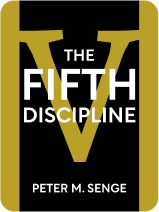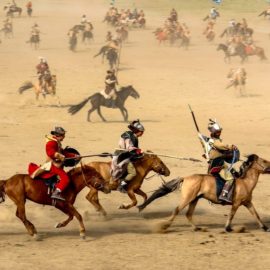

This article is an excerpt from the Shortform book guide to "The Fifth Discipline" by Peter M. Senge. Shortform has the world's best summaries and analyses of books you should be reading.
Like this article? Sign up for a free trial here.
What is “personal mastery” in Peter Senge’s The Fifth Discipline? Why is it important to encourage personal growth among your employees?
Personal mastery is the first discipline in Peter Senge’s framework for creating what he calls a “learning organization.” When every part of your company—in other words, each person within it—is committed to constant personal growth, the organization as a whole will naturally grow and improve.
Here’s how you can incorporate the discipline of personal mastery at your organization.
What Is Personal Mastery?
To create an evolving organization, the people within that organization must be willing to learn. Senge says that you should see your life as a never-ending learning process and make a commitment to constant growth and self-improvement.
According to Peter Senge, personal mastery requires two things: clear goals to strive toward, and a creative mindset so you can find ways to reach those goals.
(Shortform note: Here, Senge is describing what leadership expert Robin Sharma calls kaizen: continuous self-improvement. Sharma’s method for practicing kaizen is to make a list of weaknesses you’d like to overcome—such as a lack of energy, poor physical health, or not getting enough sleep—and face each problem head-on, one at a time, pushing your limits a little farther each day. For example, if you’re trying to improve your physical health, you might see how many pushups you can do, then try to increase that number by one each day.)
However, many companies don’t encourage personal growth because they can’t easily measure its effectiveness. Instead, those companies expect employees to focus on their day-to-day tasks and to do them “by the book,” with no room for personal growth. In doing so, they stifle people’s potential and enthusiasm.
Dedication to constant improvement makes people feel more committed, happier, and more fulfilled in their work—remember, people are naturally driven to learn.
How Personal Mastery Ties Into the Big Picture
Senge reminds us that, for all his talk about learning and evolving organizations, organizations don’t actually learn; people learn and then contribute their improved skills and knowledge to the organization.
To incorporate personal improvement into your business, Senge suggests building the company culture around it from the ground up. In short, every member of your company, as well as the company’s policies, must support honesty, creativity, and challenging the status quo.
However, if you’re not in a position to do that, you can also try to start it as a grassroots movement within the organization: Practice personal growth yourself, regardless of whether or not the higher-ups encourage it, and try to get your coworkers to do the same. Hopefully, your supervisor will take note of your department’s improved performance and ask how you accomplished it. That will begin an organizational change from the bottom up, rather than from the top down.

———End of Preview———
Like what you just read? Read the rest of the world's best book summary and analysis of Peter M. Senge's "The Fifth Discipline" at Shortform.
Here's what you'll find in our full The Fifth Discipline summary:
- Why an organization should encourage its members to constantly learn and develop their skills
- The five disciplines for creating an evolving organization
- Why you should constantly assess and update what you think you know






